Global Issues
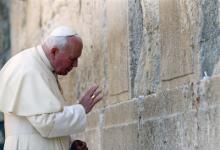
It sounds a little far-fetched and for some purists perhaps unthinkable: A pope, a rabbi, and a sheik decide to travel to the Holy Land and follow in the steps of Jesus.
The Argentina-born pope will be accompanied by colleagues Rabbi Abraham Skorka and Sheik Omar Abboud, both from Buenos Aires. It is the first time a pope’s official delegation has included members of other faiths on an overseas trip.
A slideshow of the rebuilding efforts in Tacloban City, Philippines, in the wake of Haiyan
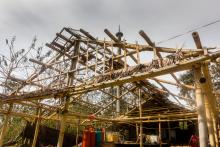
IN THE EARLY evening of Nov. 8, 2013, Arnel Montero convinced his mother, wife, and three children to evacuate to a two-story concrete house above the coastal area of Barangay 70, a fishing village in Tacloban City, on the island of Leyte in Central Philippines. He expected the worst, with the news reporting the arrival of super-typhoon Haiyan the following morning, and thought the house would be a safe place where his family could take shelter while he remained in their shanty by the coast.
Even though Haiyan’s fury hit the islands at speeds surpassing 200 miles per hour, the strong winds alone would not have created such a major tragedy. But Haiyan precipitated a storm surge that led to grave loss of life and massive devastation. Barangay 70 is located near the city’s main pier, and the tidal waters pushed cargo boats toward the coast, smashing shanties and buildings, including the concrete house where Arnel’s family sought shelter. Arnel managed to save himself, but the rest of his family perished.
The National Disaster Risk Reduction and Management Council, as of mid-March 2014, reported 6,268 deaths, although the actual number could be double that. In Barangay 70 alone, there were close to 300 people who died. An estimated 12.2 million Filipinos were affected by the disaster that hit eight provinces in the Visayas islands region; close to 2 million houses were either washed out or partially destroyed.
The national and local government’s response to the massive need for relief operations was slow. Political bickering, incompetent local governments, and the sheer inefficiency of the administration of President Benigno Aquino all contributed to major delays in bringing food, potable water, clothing, medicine, and temporary shelter to the survivors. Weeks after Haiyan struck, interior villages still had not received aid. It was not until early January 2014 that government relief agencies managed to set up the systematic distribution of relief goods.
![Cardinal George Pell in Rome, 2007. Photo courtesy of Gavin Scott [Public domain], from Wikimedia Commons.](https://sojo.net/files/styles/medium/public/blog/Cardinal_George_Pell.jpg)
Pope Francis and his council of eight cardinals are unlikely to complete a radical shakeup of the Holy See’s administration, or Curia, before 2015, the Vatican said Tuesday.
Francis joined the council’s discussions in between events on an intense appointment schedule that included an audience with King Juan Carlos of Spain after the historic double canonizations of Popes John Paul II and John XXIII on Sunday.

April 24-30 is World Immunization Week. While it is estimated that vaccinations save the lives of 2.5 million children every year, another 1.5 million children die each year from diseases that can be prevented with vaccines. Christian organizations are working to change this and help the global health community reach the 20 percent of children worldwide who miss out on life-saving vaccines.
Sylvia, a mother of three in Kasese, Uganda says she was aware of vaccines to prevent disease, but did not understand their importance or the fact that children need a number of vaccinations throughout the first five years of life. “All I understood was that there are killer diseases we should immunize our children against,” explained Sylvia. “I took my first and second child for vaccines for only the first nine months of life. I didn’t learn my children would still be at risk of catching diseases if they were not immunized for five full years until an educator from the Bishop Masereka Christian Foundation (BMCF) came to my village.”
Reaching parents with information about vaccines and vaccinating children is critical to child survival. Immunization is one of the main drivers behind the tremendous decline in child deaths the world has experienced in recent decades.
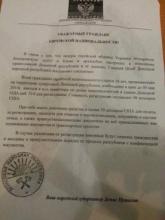
Jews in the eastern Ukrainian city of Donetsk where pro-Russian militants have taken over government buildings were told they have to “register” with the Ukrainians who are trying to make the city become part of Russia, according to Israeli media.
Jews emerging from a synagogue say they were handed leaflets that ordered the city’s Jews to provide a list of property they own and pay a registration fee “or else have their citizenship revoked, face deportation, and see their assets confiscated,” reported Ynet News, Israel’s largest news website.
Donetsk is the site of an “anti-terrorist” operation by the Ukraine government, which has moved military columns into the region to force out militants who are demanding a referendum be held on joining Russia.

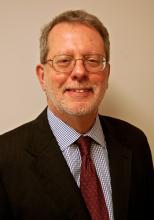
As latter-day partisans fling terms like “dictator” and “Nazi,” I decided to read William Shirer’s classic book about the real thing.
In “The Rise and Fall of the Third Reich,” the historian describes Adolf Hitler as a sad little man — a layabout and chronic failure — who discovered his larger-than-life quest, convinced himself he was above all normal constraints and found the combination of scapegoating (blaming Jews and Slavs for Germany’s woes) and delusion (grandiose master-race theory) that would justify trampling on lesser lives.
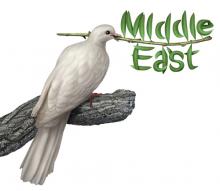
DEALING WITH IRAN is complex for many reasons. This is not a made-up country whose borders were dictated by politicians in the last century; it is Persia—the great empire that fought with Greece before the beginning of the Christian era, the Asiatic power that imperial Rome was never totally able to subdue. From that long history emerged a people with a deep sense of proud history and a realization of national sovereignty that helps guide the destiny of the nation and its peoples.
I recall a conversation years ago with then-Iranian President Mohammad Khatami about nuclear power. He was not in favor of creating weapons of mass destruction, but he clearly promoted Iran’s right to develop nuclear energy for peaceful purposes. To deny this right is an affront to national sovereignty, he argued.
After the unfortunate history of the past government, once again Iran is governed by a president and a cabinet that call for peaceful nuclear development and for a new and more open relationship with the West. This is the fact that has emerged into a clear interim agreement between the so-called P5+1—the members of the U.N. Security Council plus Germany—and Iran. As reported, the goal of ongoing negotiations is to open the door to a 24/7 inspection of nuclear facilities and other guarantees to ensure that Iran will not make nuclear weapons.
The fact that the new president and his foreign minister are talking with the United Nations, and with Western leaders in particular, gives the world a better check on the nuclear ambitions of Iran than we have on any other nation in the region that stretches from the Mediterranean to the Indian Ocean. If in the terrible, and most unlikely, event that a government of Iran should change its position and decide to build a nuclear weapon, the world would know almost immediately because of the security and surveillance that are likely to be part of a permanent agreement. In such an eventuality, it would be possible to reinstitute the former sanctions or even impose more stringent ones.
![By U.S. Department of State from United States [Public domain], via Wikimedia Commons By U.S. Department of State from U.S., via Wikimedia Commons](https://sojo.net/files/styles/medium/public/blog/Secretary_Kerry_Meets_With_the_Family_of_Kenneth_Bae_%2812194118966%29%20%281%29.jpg)
Today marks Korean-American Christian missionary Kenneth Bae’s 500th day in a North Korean prison. Bae was arrested in November 2012 while leading a tourist group. State-run media reported that he was convicted of attempting to lead a religious anti-North Korean religious coup. He has been sentenced to 15 years of hard labor. Bae is a reminder to all of us that Korea remains divided. Brothers and sisters are separated and friends are divided between the 38th parallel.
I was born in Seoul, South Korea. My mother and father were children during the Korean War, and my mother told me a few stories of how they had to flee during the war. She was a young child, one of eight. My grandmother would gather the children and walk for miles and miles making their way down into southern Korea. As they were fleeing one day, a bullet went through my grandmother’s thigh and created permanent damage to her leg. As a young child, I thought it was a wonderful war story of heroism and courage. I didn’t realize then the agony, fear, and suffering that my parents or my grandparents went through to keep safe and keep alive.
As the Korean War lingered on, it ended with the division of Korea at the 38th parallel. That division is a stark reminder of how a beautiful, lovely country can be filled with pain, sorrow, animosity, and suffering. The 38th parallel has kept family members and loved ones apart for almost 60 years. Many divided families are unable to reunite or unable to know if their relatives are still living and doing well. The heartbreak of living apart in their own country has brought lots of anger, tension, loss, and suffering.
In Korea, people have a term for such suffering: han. Han is a difficult word to translate into the English language. The best way to do so may be through ‘unjust suffering’ or ‘piercing of the heart.’
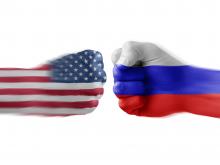
The news coverage of international conflicts can be very disappointing from a mimetic perspective. When conflicts escalate into violence as in Syria or the Ukraine, news outlets rush to cover the hostilities. They give us the facts on the ground, or rumors thereof, accompanied by an almost mindless report of what each side is saying by way of self-justification. However, if you listen to their rhetoric with mimetically tuned ears, which happens after spending time here at Raven, you realize that their rhetoric is all sound and fury signifying nothing. Unfortunately, it is this “nothing” that usually makes the headlines.
Major outlets like the New York Times rarely give as good an analysis as my colleague Adam Ericksen did last week. Speaking of the crisis in Ukraine, Adam said that we often think conflict is the result of differences. But the truth is that rivals resemble each other in often surprising ways. They are in conflict because they share the same desires and so are locked in a competition for something that they cannot or will not share. In the case of the conflict over Crimea, the “thing” is not the region but power and prestige. Adam explains:
Russia’s desire for power is mimetic, or imitative, and modeled on its rival for power, the United States. Russia wants what the United States has — the prestige of being a global super power — and Russia is willing to use the same methods that the United States has used to gain and sustain that prestige — violence.
![Friday prayer inside the Masjid Negara mosque in Kuala Lumpur, Malaysia. Photo: Alfianamy[Public domain], via Wikimedia Commons](https://sojo.net/files/styles/medium/public/blog/Inside_masjid_negara-427x320.jpg)
Many Malaysians are invoking the power of prayer to aid the massive multinational search operation for the Malaysia Airlines plane that disappeared without a trace early Saturday.
On Sunday, a former Malaysian prime minister joined multifaith groups for prayers at the Kuala Lumpur International Airport, where Flight 370 took off for Beijing. Prayers have continued across Malaysia, where Muslims make up the majority of the population, and significant numbers of ethnic minorities, including Chinese and Indians, follow other religions.

Acting President Oleksandr Turchynov is neither Ukrainian Orthodox nor Eastern Rite Catholic, and that may be the key to his success at a time when fissures between East and West are threatening to split the country, analysts say.
“It plays against the stereotype that the pro-democracy, pro-Western protesters are mostly Ukrainian-speaking Catholics,” said Vitaly Chernetsky, a professor of Slavic languages at the University of Kansas and president of the Massachusetts-based American Association for Ukrainian Studies.
Turchynov, a Baptist pastor, became Ukraine’s interim head of state on Sunday, a day after President Viktor Yanukovych was forced out amid a barrage of criticism from protesters who occupied the capital’s central square, known as the Maidan in Ukrainian, for the past three months.

As a musician barely scraping by, Gio Andollo looks to trash bins as a way of life.
On a recent outing, he carefully untied bags outside a supermarket next to Columbia University. He likes this market because it uses clear plastic bags, making it easier to spot bread, fruits, vegetables, and other treasures.
“We can use our instincts about these things and usually they’re OK,” he said. “You can always clean it well and cook it. You can make sure you’ll at least survive.”

Like everyone else, I’m addicted to the Twitter photos, Facebook posts, and litany of other social media feeds that are exposing Sochi’s unappealing shortcomings — but am I being fair?
It’s easy for me to forget that I live in one of the richest and privileged countries in the world, and although I consider myself a blue-collar employee working hard to make a living — I’m a citizen of one of the wealthiest and exclusive populations in existence.
I own a car (and a minivan), I have a house (with heating and central air), I buy a cup of coffee every morning, and spend lots of free time watching Netflix on my TV (a modest flat screen). These are just a few of the “normal” things that are luxuries I continually take for granted.
While much of humanity is engulfed in poverty, famine, war, and struggling to develop their society and better themselves — or just simply trying to survive — I’m complaining about the connection speed on my laptop (I may have to use my tablet instead).
Yes, the Olympics spent A LOT of money to create a party-like atmosphere filled with the comforts of Westernized society, but in many ways I’ve become a victim of my own comfort — accustomed to my ethnocentric American lifestyle.
I’m used to clean bathrooms, functional sewer systems, spectacular hotels, and glitzy restaurants — but much of the world isn’t. Whether we want to admit it or not, we live in a bubble detached from the reality of the rest of the world.
It’s easy to laugh at how others live, especially when we don’t have to face the same struggles. We assume our wealth and standard of living actually make us better — we become elitist and exhibit a superior sense of self-righteousness.
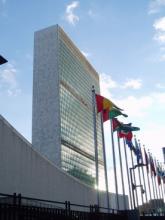
A United Nations panel on Wednesday blasted the Vatican for protecting itself rather than victims of sexual abuse, and it called on the Holy See to create what it called an “independent mechanism” to investigate new charges of abuse.
The 16-page report from the Committee on the Rights of the Child accused the Vatican of “systematically” adopting policies that allowed priests to rape and molest thousands of young people over a span of decades. It also calls on the church to remove known or suspected abusers from its ranks immediately.
“The Committee is gravely concerned that the Holy See has not acknowledged the extent of the crimes committed, has not taken the necessary measures to address cases of child sexual abuse and to protect children, and has adopted policies and practices which have led to the continuation of the abuse by and the impunity of the perpetrators,” the report said.
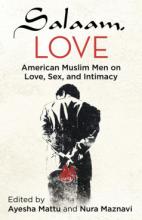
Oppressive. Boorish. Misogynist: Those are the popular images of Muslim men and how they treat women.
But there’s more to it than that, thought Ayesha Mattu and Nura Maznavi, the editors of Love, InshAllah: The Secret Love Lives of American Muslim Women.
Many Muslims welcomed the two women’s 2012 collection of 25 stories as an overdue conversation starter. Soon they got flooded with requests for a male version.
They initially dismissed the idea, assuming men wouldn’t want to write so openly about such intimate matters. But as the queries kept coming, the two editors decided a Muslim male version wasn’t that far-fetched, and given the stereotypes of Muslim men, much needed.

In the run-up to the Super Bowl, advertisers work hard to get their money’s worth, even before their spot has run. They leak teasers and hype the stars who will appear in them. If they can find a way, they generate controversy.
This year, SodaStream is already the big winner in the controversy category. One of the dust-ups surrounds a tug of war between SodaStream and Oxfam International over Scarlett Johansson, who recently accepted a role with the carbonation company and will appear in its Super Bowl ad.
On Wednesday, Johansson resigned her eight-year-long goodwill ambassadorship with Oxfam, citing a "fundamental difference of opinion."
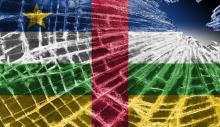
This weekend we’ll commemorate the too-short life and great work of Dr. Martin Luther King Jr. While we rightly celebrate his life dedicated to advancing equality for all, too often we overlook his call to peacemaking. This year, in light of conflicts in Syria, South Sudan, and an often-overlooked war in Central African Republic, we should remember his words.
In his 1967 speech, “Beyond Vietnam — A Time to Break Silence,” King opposed the violence, saying:
"To me the relationship of this ministry [of Jesus Christ] to the making of peace is so obvious that I sometimes marvel at those who ask me why I'm speaking against the war. Could it be that they do not know that the good news was meant for all men — for Communist and capitalist, for their children and ours, for black and for white, for revolutionary and conservative?"
Those aware of our long history at Sojourners know that we have always been committed to peace, to opposing unjust wars and finding nonviolent solutions wherever possible. And in all the work we do, we aim to speak out for the least of these, the poorest and most vulnerable.
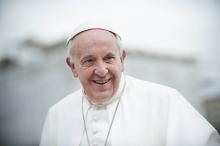
Listen in as Jim Wallis and Sojourners CEO Rob Wilson-Black kick off the new year with a discussion on Pope Francis and the new Pope's influential presence in all kinds of media.